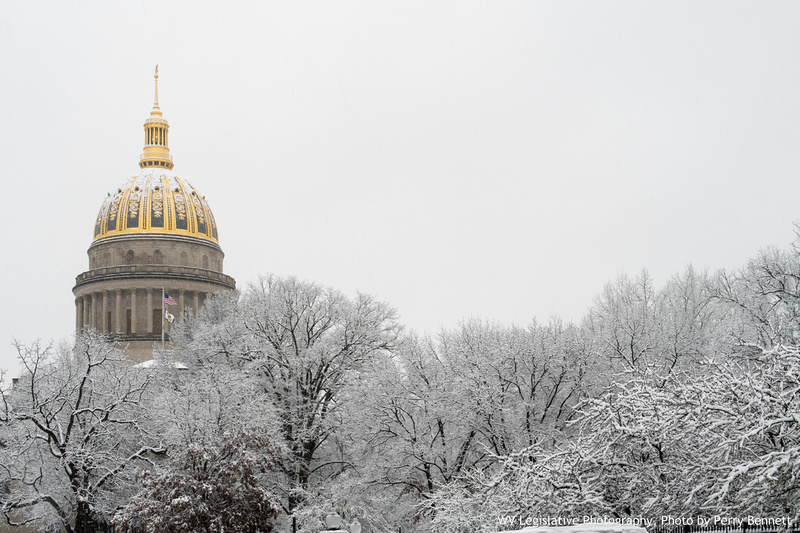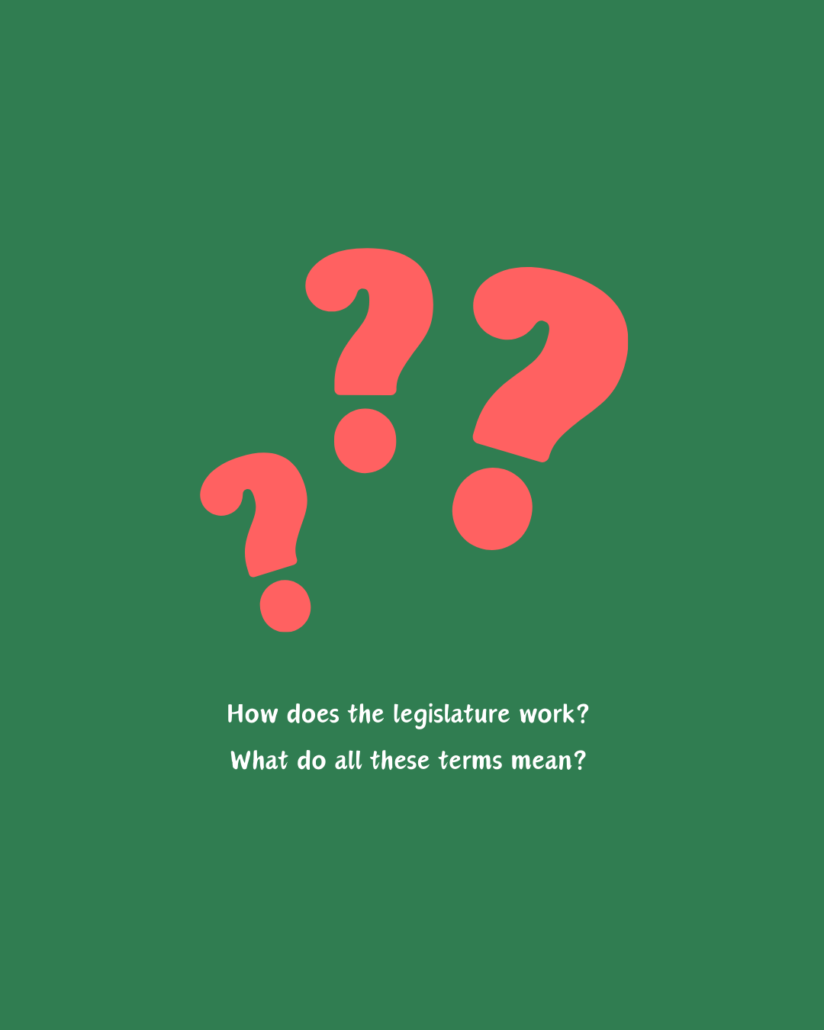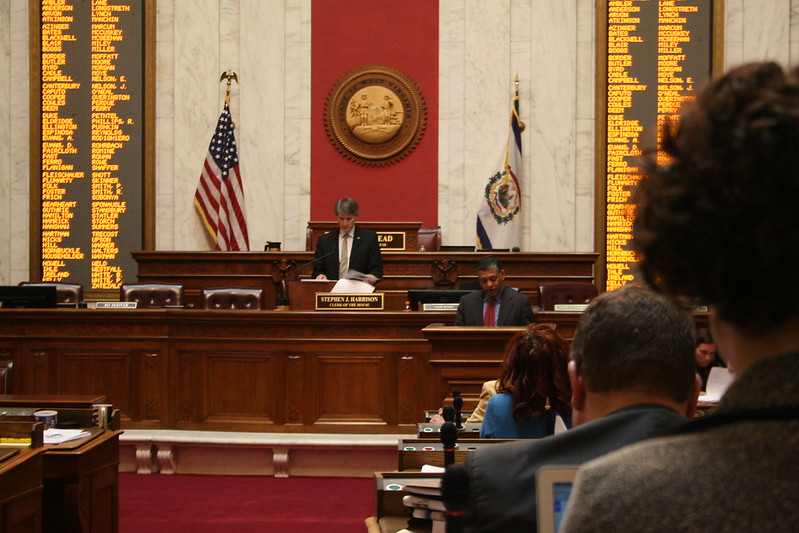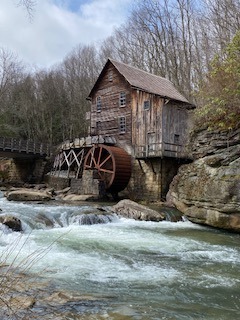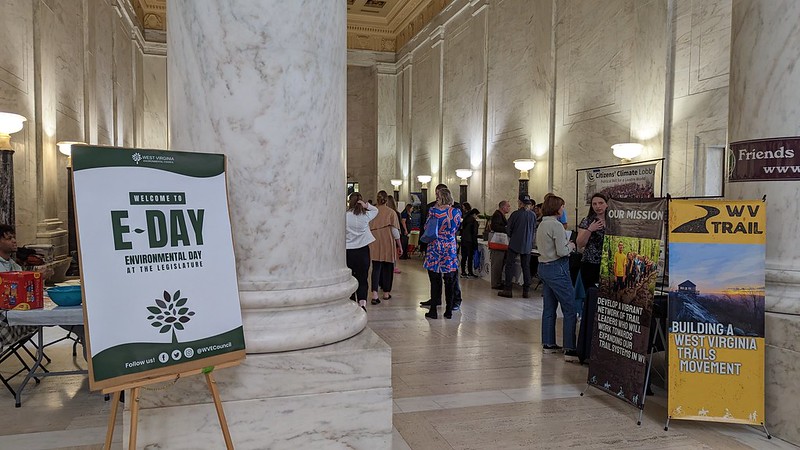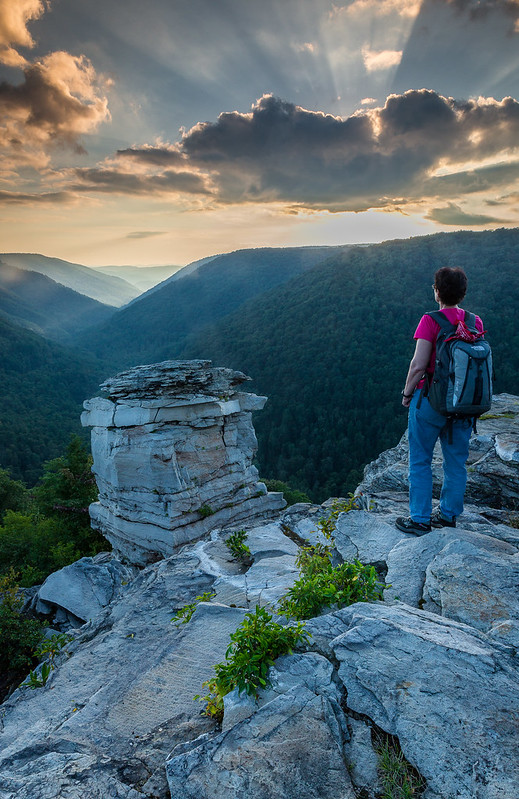SPECIAL EDITION: The West Virginia Legislature
What They Do and How to Be Involved
Good morning! It’s Friday!
We hope this first week of 2024 has started off on a good foot. Make 2024 the year to follow your passions – and also plan to spend some time in local, state, and national WV public lands. Public Lands are open to ALL.
Here’s our New Year’s resolution: Keeping West Virginians informed about the importance of public lands and waters, so you can advocate for public lands protections to decision makers.
It’s the Friday before the WV State Legislature, which begins on Wednesday, January 10, 2024. For 60 days, the Senate and House of Delegates will consider numerous bills and make decisions for all West Virginians. We need your help! We will keep a close eye on any bill or amendment that impacts our wild and wonderful state-owned and operated public lands. State public lands include State Parks, Forests and Rail Trails, and Wildlife Management Areas.
The WV State Capitol in Winter; WV Legislative Photography by Perry Bennett
This special edition of the Public Lands News focuses on the legislative session. Here you will find information about what happens to a bill, how to contact your two Senators and one Delegate, upcoming trainings, and opportunities to get involved.
We will be sending monthly newsletters about WV public lands and providing immediate alerts when the legislature is about to take action on your public lands. Join WVPL and stay up to date while the legislature is in session. Buckle up, and let’s go!
Here are some of our top priorities:
1. Conserve our wild and wonderful public lands for nature-based, non-motorized recreation
2. Advocate for robust funding needed for our public lands,
3. Ensure ecologically sustainable and connected public lands, and
4. Encourage full protection of biological diversity and unique areas.
Understanding How the Legislature Works
The legislative process can be confusing. Here’s information about key dates and terms!
The legislature can be a mystery. However, if you understand a few concepts and deadlines … it will make more sense (hopefully!).
First, there are two “chambers” – the Senate with 34 Senators and the House of Delegates with 100 Delegates. You are represented by two Senators (MAP) and one Delegate (MAP). Interactive maps may help you find your representatives.
A “bill” is a proposed law. You have to be a Senator or a Delegate to “file” a bill – that means make it part of the legislature’s list of ideas to consider. Each bill is assigned to one or more committees or subgroups in the legislature that review bills in a particular area. There is a Senate committee and a House committee that normally reviews each public land bill. The Senate also has a Committee on Outdoor Recreation. Here’s a list of all Senate Committees and House Committees.
Many bills are introduced, and nothing happens – they just sit there in committee. If a bill doesn’t pass out of its committee, it cannot be considered anymore.
Members of the House of Delegates debating a bill
When a committee considers and approves a bill, it then goes to the “floor” for all the members of the Chamber (House of Delegates or Senate) to consider. The bill has to be “read” three times – that means the bill is called by number on three consecutive days. The bill can be “amended” (changed or revised) on the floor. On the “third reading,” there is a vote on the bill. If the majority says “yes,” the bill passes that chamber.
The bill is then sent to the *other* chamber, where the chamber starts the *entire* committee and floor process all over again.
If the House and Senate pass an identical bill (it has to be exactly the same), the bill goes to the Governor. The Governor can sign (approve the bill, and it becomes law) or veto it. If the Governor says no – the legislature can override the veto, which means 2/3 of the members in both chambers vote yes again.
The 60-day legislative session starts Jan 10th and ends March 9th at midnight. This is important: any bill that has not passed both Chambers by midnight is dead, which means it did not pass.
Here’s the 2024 calendar. You’ll see that there is a deadline to introduce bills in the House of Delegates and a different deadline in the Senate.
One very important date is “crossover day,” which this year is February 28th. A bill must pass one Chamber and be sent to the other chamber by this date, or it is dead.
One final thought – each chamber can suspend the constitutional rules and speed up the process, which avoids committees and fast-tracks the passage of bills. We are opposed to this process because it leaves the public in the dark with little time to contact their representatives.
If you have any questions about the legislature or any specific bill, email Mike Jones at mjones@wvrivers.org. We want to support you in staying informed and involved!
Public Lands Legislative Priorities
WVPL will be watching for public lands bills during the entire legislative session. We’ll let you know about any public land issues and how to take action.
We would like to see:
- Nature-based, non-motorized recreation compatible with public lands in our Parks, Forest, Wildlife Management Areas (WMA), and other state lands. Extend the prohibitions against motorized trails to WMAs!
- Conservation of our scenic, wild and wonderful rivers, streams, and waters.
- Robust funding for staff and maintenance.
- Increased accessibility for all compatible with conservation of public lands.
- Multiple opportunities for public participants for new plans for our state lands.
We want your opinions on public lands priorities. Fill out our form with your opinions.
We are fortunate to have folks working in Charleston from WV Rivers and WV Environmental Council (and affiliated groups) every day during the legislative session.
Get Involved – Attend E-Day on Feb. 13th
Training Available!
West Virginia’s public lands need you!
Did you know there’s an entire day when groups concerned about public lands and other environmental issues meet in Charleston to talk to our legislators!? Please join us this year for E-Day, on February 13, 2024.
Groups working on public lands issues from all over the Mountain State will be present. Learn about the issues and meet with legislators. Meeting with your representative can be intimidating, but you won’t be alone! Training is available to help you navigate the process.
Please register so we know you are coming to show your support for our wild and wonderful public lands!
Are you a student group or small community group that wants to get involved? There is limited funding to help with transportation costs. If interested, email Mike Jones at mjones@wvrivers.org.
E-Day at the Capitol
E-Day sounds fun! But how do I meet with my legislator? What do I say? The WV Environmental Council is providing two trainings to prepare you for E-day.
Advocacy 101: Make a Difference for West Virginia: This Lunch and Learn webinar will teach you the basics about the legislature and advocacy on Tuesday, January 16, 2024, at noon (1 hour).Sign up now!
E-Day Advocacy: Bills and Talking Points: This evening webinar on February 6, 2024, at 7 pm, will provide detailed information about pending legislation with talking points for each bill to prepare you for meeting with legislators. Sign up here!
Need more support or can’t make one of the webinars? Here is a recent Advocacy training from WV Trails and a recent training from WV Rivers.
Already feeling prepared? Don’t wait to contact your representative: Emails and phone numbers for Senators. Emails and phone numbers for Delegates.
WV public lands need you and your voice!
Be a Part of West Virginians for Public Lands:
Join Us! WV Public Lands is on Social Media!
It takes each and every one of us to conserve these priceless lands for all!
West Virginians for Public Lands (WVPL) believes that West Virginia public lands, waters, and wildlife that inhabit them are intrinsically valuable, and these special areas should be preserved. Public lands provide and need:
- Access to public lands for all people, especially for currently underserved communities.
- Ecologically sustainable and connected public lands.
- Full protections of biological diversity and unique areas.
- Improved nature-based, non-motorized recreation opportunities compatible with the conservation of public lands.
- Robust funding for restoration, management, and acquisition of public lands.
Is this something that you also believe?
We’d love you, your business, or your organization to be a part of this vision. Sign up HERE or click the button below.
Be sure and follow WVPL on social media – tag us on your pictures and public lands news! Check us out here:
FACEBOOK: wvpubliclands
X (Twitter): @WV4PublicLands
Instagram: wvpubliclands
A hiker at Lindy Point watches the sunset over the WV Wilderness in Blackwater Falls State Park. Photo by Kent Mason.


